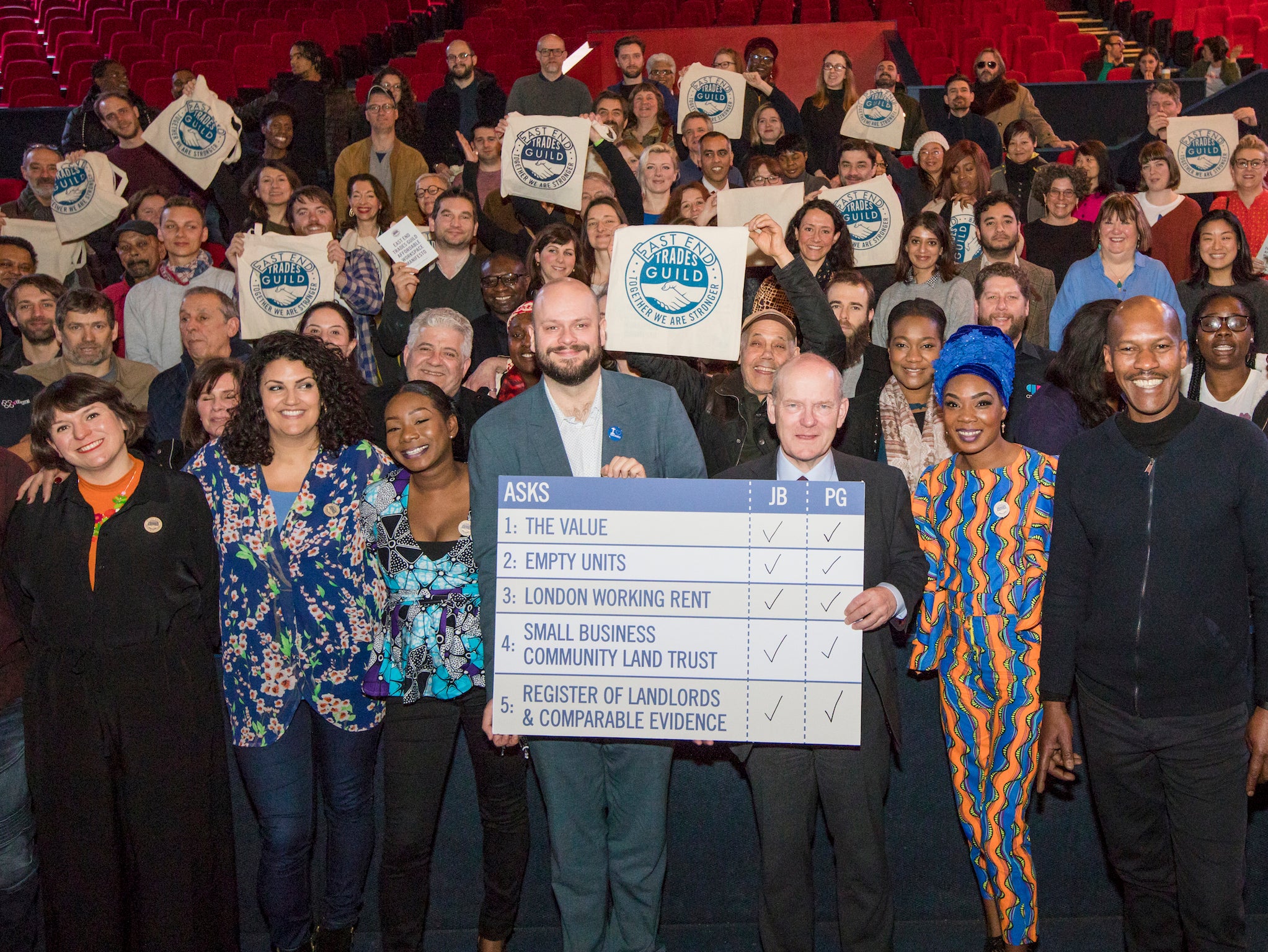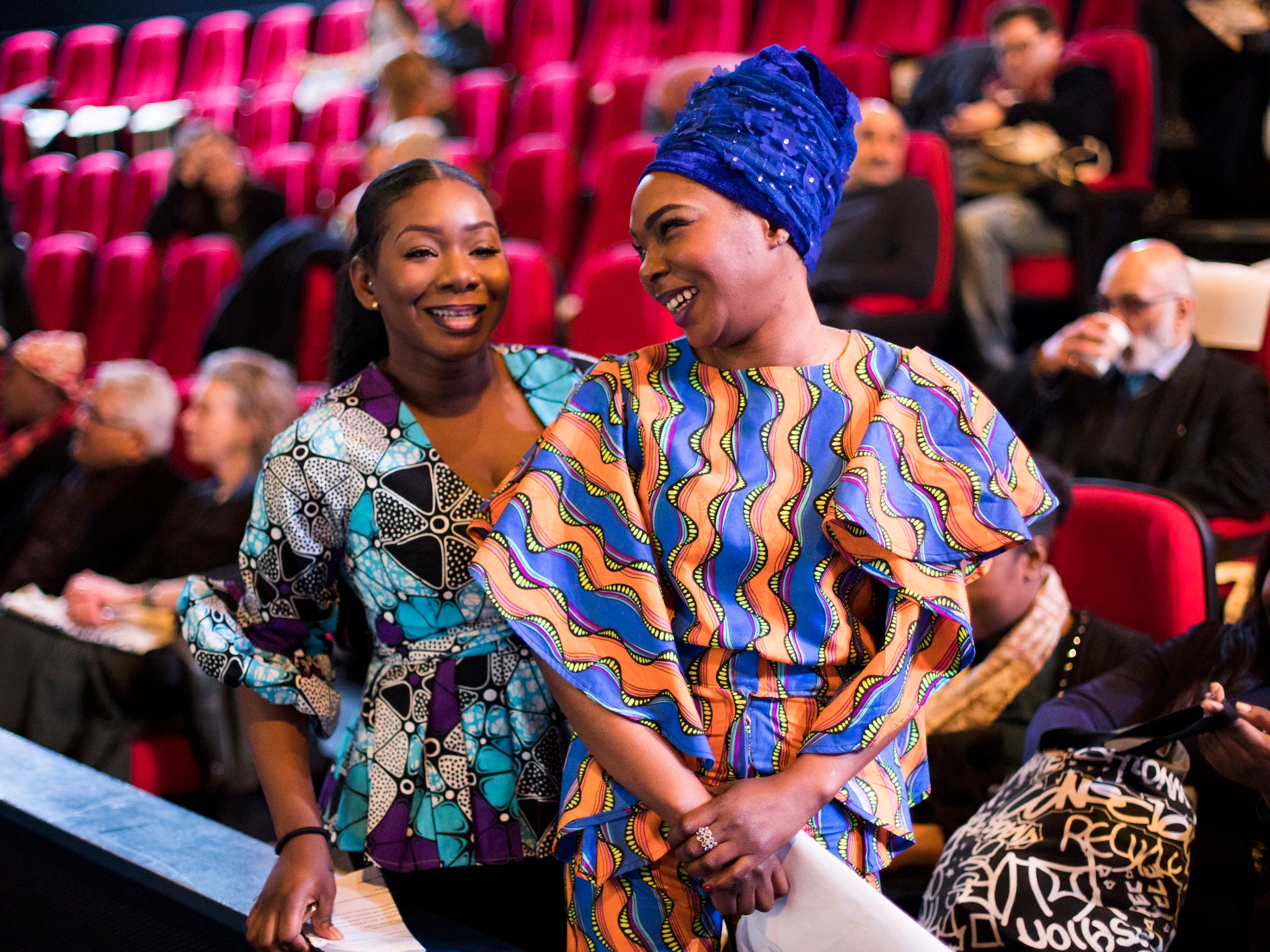How East London’s small businesses and traders are joining forces to demand fair rent
Small traders account for 97.9 per cent of all businesses in Tower Hamlets and 99.7 per cent in Hackney, providing half of the employment across two of the poorest boroughs in the city

Your support helps us to tell the story
From reproductive rights to climate change to Big Tech, The Independent is on the ground when the story is developing. Whether it's investigating the financials of Elon Musk's pro-Trump PAC or producing our latest documentary, 'The A Word', which shines a light on the American women fighting for reproductive rights, we know how important it is to parse out the facts from the messaging.
At such a critical moment in US history, we need reporters on the ground. Your donation allows us to keep sending journalists to speak to both sides of the story.
The Independent is trusted by Americans across the entire political spectrum. And unlike many other quality news outlets, we choose not to lock Americans out of our reporting and analysis with paywalls. We believe quality journalism should be available to everyone, paid for by those who can afford it.
Your support makes all the difference.Abz Abimbola is about to ask John Biggs and Philip Glanville, the mayors of Tower Hamlets and Hackney respectively, a question upon which her livelihood depends.
It’s Tuesday morning at the independent Genesis Cinema in Mile End, London. Abimbola is dressed in a jumpsuit made of blue and orange fabrics from her family shop, Franceskka Fabrics in Petticoat Lane market, Tower Hamlets. She takes a deep breath and turns to face the mayors.
“If you are both re-elected in May, do you pledge to recognise the community value of small and micro-businesses to your boroughs?”
The answer is a no-brainer. Small traders account for 97.9 per cent of all businesses in Tower Hamlets and 99.7 per cent in Hackney, providing half of the employment across two of the poorest boroughs in the city. But in recent years, small businesses like Franceskka Fabrics have stopped believing that politicians understand their value.
The traders are being wiped out by aggressive rent hikes by private landlords. In Hackney, one nursery has 200 children on the waiting list because it cannot find affordable space. Another family business in Bethnal Green must pay a 275 per cent rate hike or face eviction. A 200 per cent rent hike in a railway arch rented by a taxi mechanic was the final straw for one trader, who committed suicide.
The politicians say they care about small businesses. But the traders, unable to afford commercial property, are leaving the area. Hackney has already lost a 150-year-old stationery manufacturer for Woodford, while a furniture-maker has moved out to Essex after 20 years.
Abimbola’s mother Franceskka arrived from Edinburgh in the 1980s and sold fabric from the back of a car until she could afford a unit in Petticoat Lane. The area would become world-renowned for West African fashions and a rich centre for cultural heritage. Yet recently, the fabric and jewellery shops are closing down, while takeaway food stalls catering to the office lunch crowd are colonising the street stalls.
In the weeks before the meeting, I visit the shop on Wentworth Street, part of the area known as Petticoat Lane. “In the last nine years the market has changed dramatically,” says Tayo Abimbola, Abz’s sister. “It used to be booming, people would come and take pictures of the shopfront. But a lot of people are leaving and a lot of shops are empty because the rent is really high. Now we’re a dying breed.” Units lie empty near the Abimbolas’ shop, while other businesses are advertising closing down sales.
The Abimbolas have joined forces with other East End traders to put their demands to the mayors of Hackney and Tower Hamlets as part of the East End Trades Guild, a new kind of trade union that brings small business owners in London together through a method called community organising.

The guild is the result of almost four years of community organising that started when Krissie Nicolson, co-founder and director, went to visit Gardners’ Bags in Spitalfields to listen to proprietor Paul Gardner’s concerns about the area.
Nicolson has helped train representatives like the Abimbola sisters in community organising, so they know how to spread the word about the guild. There are now 230 members. Members pay a small fee to join and meet regularly to discuss their business concerns and what to do about them.
After identifying rising rent as the biggest threat to business, members listened to 300 local traders and surveyed 70 to come up with a list of five key questions to put to the borough mayors at the live event.
Some of the questions focus on making small businesses more sustainable, by identifying empty buildings in the boroughs, or helping set up a community land trust to hold properties in perpetuity.
Others focus on making business rent across the borough more transparent, by creating a register of landlords to allow small businesses to compare rents and supporting the development of an affordable rent formula to standardise how prices are determined.
Mayor Biggs of Tower Hamlets, who is seeking re-election on 3 May, knows it would be political suicide not to recognise the value of these traders.
“Small business is the bedrock of our economy,” he tells guild members and their supporters in the stalls at the cinema. “And the East End, although it is often portrayed as a place full of needs, is one of the most entrepreneurial places in the UK. So we do need to protect our small businesses.”
But the mayors fall short of agreeing to transfer empty properties to the guild. Buildings are often empty for a reason, Mayor Biggs says. And cash-strapped councils need to keep hold of all the assets they can. “The answer is complicated,” Mayor Biggs admits. “We would like businesses to have affordable workspaces. I want to sit down with the East End Trades Guild to make this work better.”
Abimbola looks at him: “Is that a yes?”
“I could have just said yes, couldn’t I!” the mayor replies.
The audience applauds. Several people get their phones out to post the news on Facebook and Twitter.
The event gives the Abimbola sisters and other East End businesses a chance to address those in power directly and to put their concerns about rent on the political agenda. Nicolson describes it as live democracy of the kind that emerged in ancient Greek theatre. “It’s real politics unfolding right in front of you. People see politics as other and away from them, but actually if you bring it closer it becomes something else. Hopefully the people involved felt powerful.”
Both mayors seem to appreciate the process. “I’m very happy to be at the Assembly to be held accountable and to discuss what else we can do to support employment and employers in Tower Hamlets,” Mayor Biggs says.
But the survival of small businesses will rely on politicians taking action on the guild’s demands. That will rely on the guild and its supporters holding the mayors accountable for their promises. “The guild has brought us a lot of help that we might not have found anywhere else,” Tayo Abimbola says. “We meet so many people who do the same things and we have a common ground. Together, we’re stronger.”
Join our commenting forum
Join thought-provoking conversations, follow other Independent readers and see their replies
Comments